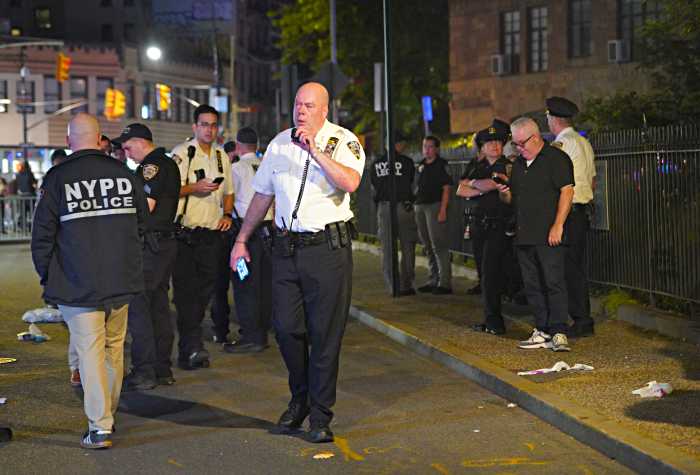During a nine-hour hearing held at Queens Borough Hall last Thursday, residents voiced their opinions about local school boards, abolished in June by a new school governance law. The boards will continue to operate until the close of the school year and there is still no plan to replace them.
On October 31, the Task Force on Community School District Governance Reform, under the direction of the State Legislature, instituted hearings throughout the five boroughs to discuss viable alternatives for existing school boards.
Historically, school boards have functioned as advocates for responding to concerns and issues unique to individual districts. They are the only official forum where parents can go to express school-related grievances. In recent years however, many boards have come under fire due to repeated acts of corruption and wrongdoing among board members which led to the violation of public trust.
"Most people felt that we had reached a point at which the system needed to be overhauled, revamped and made accountable," said Assemblyman Steven Sanders, a co-chair of the task force. "The task force is charged with developing a district-wide governance system that will be better than what we have had."
Many at the meeting spoke passionately about the shortcomings of their local school boards."Members of the school boards dont have a clue whats going on in the schools," Meg Becker, parent-teacher president for PS 129 in College Point, told the panel.
"There are a lot of problems in the schools that the school boards just dont know about," complained Sandra Smith, the parent of a southeast Queens middle schooler. She said she had asked her school boards help to get an error on her sons report card changed, and it had taken a full year to solve the problem.
The parents, politicians, school board members and local activists who aired their views at the hearing all emphasized the need for a school-district-wide body that gives parents a voice in school governance. However, they did not agree over what that body should beor even whether the school boards should be done away with.
"The few opportunities [parents] have to contribute in a substantive way are being whittled away," said Maria Dapontes-Doherty, co-president of the parent-teacher association of PS 2 in Jackson Heights. "I believe our voice is the key to success." She insisted that whatever replaces the boards, its members should be parents of school-age children in the public school system, and they should be elected, not appointed. "If parents are given the tools, they will use them with enthusiasm," she said.
Councilman Leroy Comrie (D-St. Albans), who voted against abolishing the boards, agreed that parents are entitled to a strong voice. "Schools that open their doors to parents and let them be an integral part of the system do better," he said.
A majority of speakers at the hearing said they thought the new entities should be given powers that were revoked from the boards in 1996. Before then, school boards hired and assessed district superintendents, principals and assistant principals and oversaw the district budget, as well as hearing parents concerns. Since most of those powers were stripped and assigned to the chancellor six years ago the boards were redesigned to focus on parents issues and evaluate the education plan of their district.
"In 1996, power was taken from the school boards and given to the chancellor," said Basir Mchawi, who spent many years running an education program for unwed mothers in Jamaica. "[It was a] self-fulfilling prophesy that the school boards would fail."
Ernest Brown, a member of Board 27 in southern Queens, agreed. "At one time boards had mass public meetings about who should be superintendent of the district," he said. "There was energy there because the body was able to exert its influence. As people began to see the body couldnt do a darn thing for them, people didnt support it."
Also noted by many in attendance was the fact that the school board election process has many flaws. They said the polls were not adequately publicized and that the antiquated paper ballots opened the way for tampering and inaccuracy.
Brown also noted, "The public supports the schools through taxes, so they should be allowed to have a say [in their governance]."
All in all, the majority of the speakers voiced support for the creation of entities that closely resemble the existing school boards. If the new bodies members are not elected locally, it could prevent the voices of minority families from being heard, and thus challenge the federal Voting Rights Act.
"There are good school boards and there are bad school boards," said Assemblyman William Scarborough (D-St. Albans). "Dont throw out the baby with the bath water."
Deborah Jackson, a Queens Village parent, left the panel with a plea that whatever follows the school boards, its members should be passionate about helping New York children get the best education possible.
"If someones going to speak on behalf of me, I want them to do it because they care, not because it puts money in their pocket," she exhorted the task force. "I want them to do it because they love our children and are interested in them."































